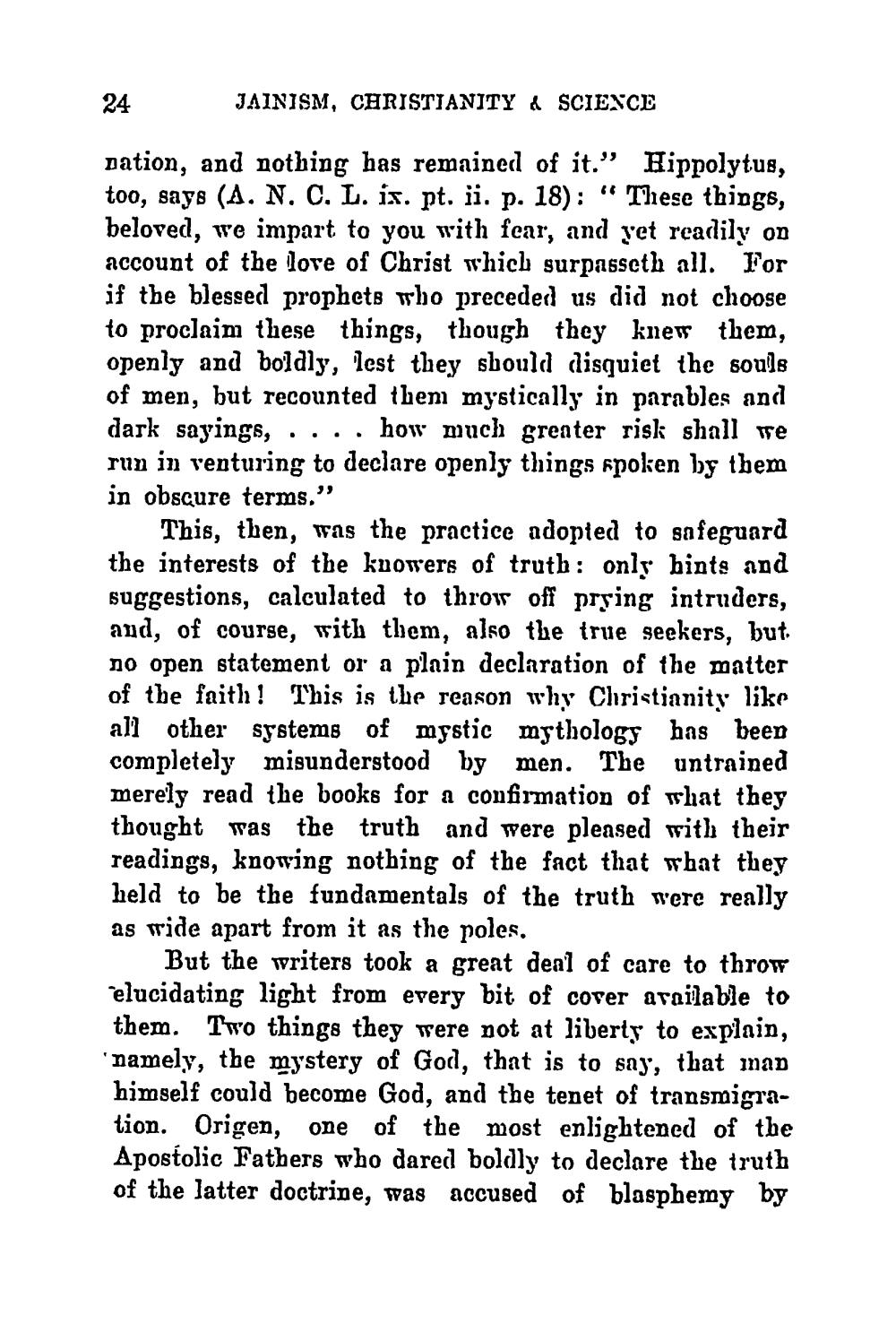________________
24
JAINISM, CHRISTIANITY & SCIENCE
dation, and nothing has remained of it.” Hippolytus, too, says (A. N. C. L. is. pt. ii. p. 18): “ These things, beloved, we impart to you with fear, and yet readily on account of the love of Christ which surpasscth all. For if the blessed prophets tho preceded us did not choose to proclaim these things, though they knew them, openly and boldly, 'lest they should disquiet the souls of men, but recounted them mystically in parables and dark sayings, .... how much greater risk shall re run in venturing to declare openly things spoken by them in obscure terms."
This, then, was the practice adopted to safeguard the interests of the knowers of truth: only hints and suggestions, calculated to throir off prying intruders, and, of course, with them, also the true seekers, but no open statement or a plain declaration of the matter of the faith! This is the reason why Christianity like all other systems of mystic mythology has been completely misunderstood by men. The untrained merely read the books for a confirmation of what they thought was the truth and were pleased with their readings, knowing nothing of the fact that that they held to be the fundamentals of the truth were really as ride apart from it as the poles.
But the writers took a great deal of care to throw elucidating light from every bit of cover arailable to them. Two things they were not at liberty to explain, 'namely, the mystery of God, that is to say, that mad himself could become God, and the tenet of transmigration. Origen, one of the most enlightened of the Apostolic Fathers who dared boldly to declare the truth of the latter doctrine, was accused of blasphemy by




